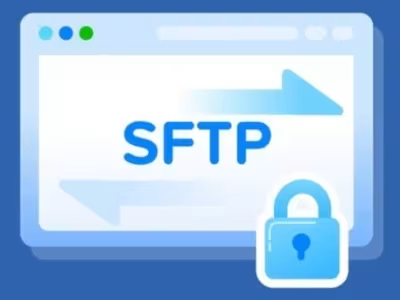Developing a Custom Fully-Featured P2P Blockchain Network
Developing a Custom Fully-Featured Peer-to-Peer Blockchain Network in Python
Overview
In our continuous effort to provide innovative and secure technological solutions, we have developed a custom, fully-featured peer-to-peer (P2P) blockchain network entirely in Python. This project demonstrates our expertise in blockchain technology, decentralized systems, and network communication protocols. By creating this blockchain network from the ground up, we offer clients a transparent and customizable platform that can be tailored to specific business needs.
Objectives
Demonstrate Core Blockchain Concepts: Illustrate the fundamental principles of blockchain technology, including decentralization, consensus mechanisms, and cryptographic security.
Develop a Decentralized Network: Create a P2P network where nodes can communicate directly without relying on a central authority.
Implement Consensus Algorithms: Use the Proof-of-Work (PoW) algorithm to achieve consensus across the network.
Enable Secure Transactions: Facilitate secure and immutable transactions between nodes on the network.
Provide a Foundation for Customization: Offer a base platform that can be adapted for various applications, such as cryptocurrency, secure data sharing, or smart contracts.
Implementation Details
1. Blockchain Structure
Block Components: Each block contains an index, timestamp, list of transactions, proof (nonce), and the hash of the previous block.
Hashing: Utilized the SHA-256 cryptographic hash function to ensure data integrity and security.
Immutability: Once added to the chain, blocks cannot be altered without invalidating the entire chain, ensuring tamper-proof records.
2. Peer-to-Peer Network
Node Communication: Implemented a decentralized network where each node can interact with others to share blockchain data and transactions.
Flask Framework: Used Flask to create a RESTful API for node interaction, enabling easy communication through HTTP requests.
Network Topology: Nodes maintain a list of peers, allowing the network to remain robust even if some nodes go offline.
3. Proof-of-Work Consensus Algorithm
Mining: Nodes compete to solve a cryptographic puzzle, ensuring that adding new blocks requires computational effort.
Difficulty Adjustment: The algorithm can adjust the difficulty of the puzzle to control the rate of new block creation.
Consensus: Nodes agree on the longest valid chain, preventing malicious actors from easily altering the blockchain.
4. Transactions and Wallets
Transaction Structure: Transactions include sender and receiver addresses and the amount transferred.
Validation: Before adding to a block, transactions are validated to prevent double-spending and ensure authenticity.
Wallet Implementation: While simplified, the system allows for basic wallet functionality using public addresses.
5. Security Measures
Cryptographic Techniques: Employed SHA-256 hashing and digital signatures to secure transactions and blocks.
Decentralization: Eliminated single points of failure, enhancing the network's resilience against attacks.
Data Integrity: Each block's hash depends on the previous block, creating a chain that is secure against tampering.
Features
Fully Decentralized Network: No central authority; nodes operate independently yet maintain consensus.
RESTful API: Simplifies interaction with the blockchain and network nodes through standard HTTP methods.
Extensible Design: Modular code structure allows for the addition of new features like smart contracts or token systems.
Comprehensive Documentation: Provided clear instructions and code comments to facilitate understanding and further development.
Benefits to Clients
Customization: Clients can tailor the blockchain network to fit specific requirements, such as private blockchains for enterprise use.
Transparency: Open-source codebase ensures transparency and trust in the system's operations.
Security: Robust security features protect against common blockchain attacks, safeguarding client data and transactions.
Innovation: Leveraging cutting-edge technology positions clients at the forefront of their industries.
Use Cases
Cryptocurrency Development: Serve as a foundation for creating custom digital currencies.
Supply Chain Management: Track products transparently and immutably throughout the supply chain.
Secure Data Sharing: Enable secure, decentralized sharing of sensitive information across organizations.
Smart Contracts: Implement self-executing contracts with the terms directly written into code.
How It Works
Node Initialization: Nodes start by initializing their own copy of the blockchain and connecting to peers.
Transaction Creation: Users create transactions that are broadcasted to the network.
Mining Process: Nodes collect transactions into blocks and perform PoW to mine new blocks.
Chain Synchronization: Nodes share their chains; the network adopts the longest valid chain to maintain consensus.
Verification: Each node verifies new blocks and transactions, ensuring the integrity of the blockchain.
Conclusion
Our custom P2P blockchain network showcases our ability to develop advanced technological solutions from the ground up. By utilizing Python, we have created a flexible and accessible platform that can serve as a cornerstone for various applications requiring secure and decentralized systems. This project underscores our commitment to innovation, security, and client-focused solutions.
Future Enhancements
Smart Contract Integration: Implementing a virtual machine to execute code on the blockchain.
Tokenization: Enabling the creation of custom tokens or assets on the network.
Enhanced Security Features: Adding more sophisticated cryptographic techniques and consensus algorithms like Proof-of-Stake (PoS).
Scalability Improvements: Optimizing network performance to handle higher transaction volumes.
By adding this project to our portfolio, we demonstrate our proficiency in blockchain technology and our ability to deliver complex, secure, and innovative solutions tailored to our clients' needs. We invite clients to explore the possibilities that this customizable blockchain network offers and to collaborate with us on leveraging this technology for their specific applications.
GitHub Repository:
Like this project
Posted Oct 1, 2024
A Python implementation of a decentralized blockchain network. This project includes core blockchain functionality, a peer-to-peer node network, wallet and tra…
Likes
0
Views
15









